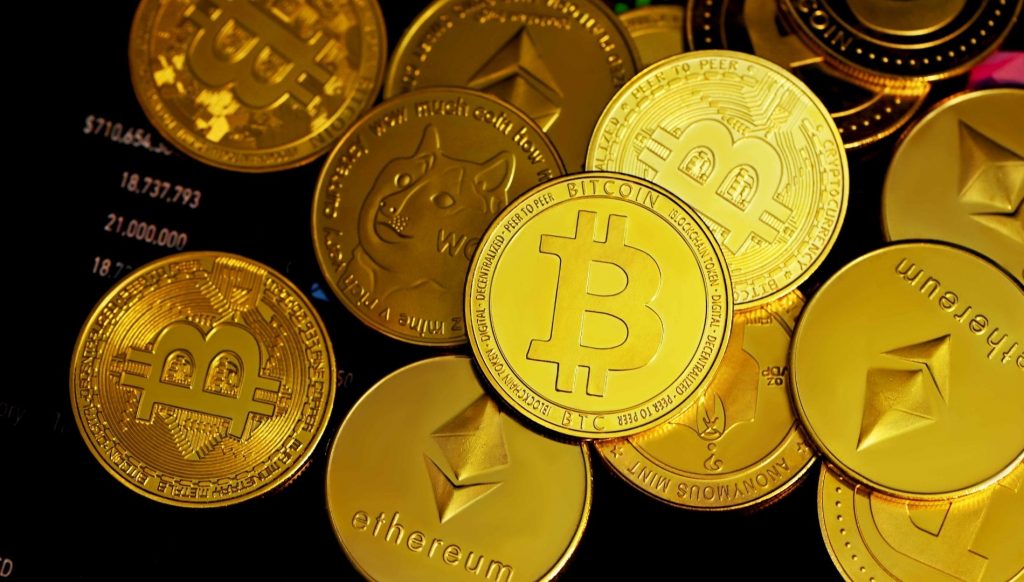What are altcoins and how are they different from Bitcoin?

Bitcoin’s 2009 launch raised eyebrows and created a feeling of confusion. The internet started to use the buzzwords digital currency, cryptocurrency, and other terms. Since then, the way people view assets and invest has changed.
Many other cryptocurrencies have been inspired by the phenomenal success of Bitcoin. These became known as altcoins. Two words are used to describe the altcoins: ‘Alt’ denotes “alternative” and ‘coin” denotes “cryptocurrencies”.
This is all you need to know about altcoins
What are altcoins exactly?
Altcoins are all cryptocurrency other than Bitcoin. To replicate the success story, they were created in a similar blockchain structure and follow a peer to peer system. Altcoins also require a special mining method in order to allow users to make secure and private web transactions.
According to the price-tracking website CoinMarketCap there were over 16,900 types cryptocurrencies as of 19 January 2022. Bitcoin and Ethereum account for 60 percent of the crypto-market, with the remainder being taken up by other coins.
Difference between Bitcoin and Altcoins
Although they share many similarities and use the same mechanism, Bitcoins and altcoins are different in many ways.
Implementation and use of Bitcoin can be difficult because proof-of-work, the mechanism that creates the crypto blocks, is very energy intensive, intensive and limiting.
Altcoins go beyond that. Altcoins instead use the proof-of stake mechanism to gain a competitive edge. This makes it less energy-intensive and takes less time to validate transactions. Also, Bitcoin’s smart contracts capabilities are extremely limited.
Altcoins address the criticisms of Bitcoin by focusing on sustainability and scalability.
In smart contracts on Ethereum, Ether (ETH), is used to pay for transaction costs. The launch of Ethereum 2.0, which is anticipated to be a distinct identity for the users, is drawing attention.
What do investors think about altcoins?
Altcoins are always striving to be independent from the Bitcoin structure. This will allow them to have a value which is not affected by fluctuations in Bitcoin rates.
The market for non-fungible tokens (NFT), has seen their popularity rise, thereby boosting its value. At the time this article was written, Ethereum had a market capitalization of more than USD 377 billion.
They are often accompanied by scepticism. Nelson Merchan, CEO at blockchain events company Light Node Media believes that you should take things slowly and not see altcoins only as a way to make quick cash. It is best to make investments in the most well-established currencies if you have to.
What are the various types of altcoins available?
There are many altcoins.
Stable currencies have the lowest volatility. This is achieved by linking their value to fiat currencies, precious metals or real-world assets. It helps holders and users redeem the currency when it falls.
Notable altcoins include Tether (USDT), MakerDAO’s DAI and the USD Coin.
Security tokens look similar to a digital liquid contractual, which displays a portion of an asset or business. It is very similar to regular financial security. They are useful in recording crypto transactions, and their price prospect is what attracts investors.
Meme Coins are hyped cryptocurrency that only gain prominence for a brief time online. This is usually due to some celebrity or well-known personality who deals in cryptocurrencies and joking around about it.
Elon Musk, for example, often posts cryptic tweets about Dogecoin. If such a trend occurs, prices and shares rise but only temporarily.
Utility tokens are used to provide services within a network. Utility tokens can be used to buy NFTs, trade, mint, redeem awards, pay network fees, and provide other services within a blockchain system. These functions can be performed by Ethereum, the most popular utility token.
Some notable altcoins
There are many altcoins on the market. According to an Investopedia report, some of the most well-known altcoins are Ethereum (ETH), Stellar (XRM), Stellar (LTC), Stellar [XRM], Cardano (ADA), Polkadot DOT), Bitcoin Cash (BCH), and Dogecoin(DOGE).



